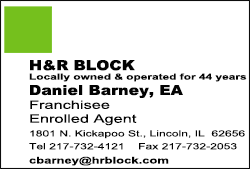|
 Before the March 22 disaster, Rankin's main tasks as mayor of the
small logging town of Darrington included overseeing town council
meetings and resolving property line disputes in the community of
about 1,350 people. Before the March 22 disaster, Rankin's main tasks as mayor of the
small logging town of Darrington included overseeing town council
meetings and resolving property line disputes in the community of
about 1,350 people.
But since the mudslide about 10 miles west of town, Rankin's job has
been transformed into that of comforting the grieving and
articulating their anguish to the outside world.
"That scar on the mountain will never heal nor will the scar in our
hearts ever heal," Rankin, 52, told reporters.
The unofficial body count rose to 28 on Saturday, with the official
tally of those killed now 18 based on bodies extricated and
identified by medical examiners. But the count of missing dropped to
30 from 90.
In the week since a chunk of rain-soaked hillside 1,500 feet long
tumbled onto a river near the tiny community of Oso, smothering a
state road and swallowing up dozens of homes, Rankin's new role
symbolizes the changed reality for many in the area northeast of
Seattle.

Along with those who lost their homes and relatives, nearly everyone
in Darrington is mourning a friend or acquaintance lost in the
disaster, and usually more than one.
They have also, for the foreseeable future, lost the main artery,
Highway 530, connecting them to other communities.
"We try to hold ourselves together to help each other, and this
community is incredible, but it has been really hard," said Marshann
Wehrli, a deli worker at Darrington's grocery store.
"WANT THEM TO STOP HURTING"
At nightly town hall meetings attended by hundreds and held in the
high school gym, Rankin, dressed typically in a lumberjack shirt and
blue jeans, has pledged assistance, shed tears, hugged the bereaved
and opened the microphone to anyone with a grievance.
At the Friday night meeting, attended by both U.S. senators from the
state, two U.S. representatives and the state's secretary of
transportation, all of whom pledged their unstinting support, the
largest ovation was reserved for Rankin.
"I want my town to be whole and well and I want them to stop hurting
and I want them to have the things that we need," Rankin said after
the meeting. "I feel so humbled, because I don't feel like I'm doing
enough."
[to top of second column] |

As the full toll of the disaster comes into focus, Rankin's
constituents, like the mayor himself, are beginning to absorb a new
reality in which great loss mingles with more mundane hardships.
Lou Kitz, an airplane mechanic who lives in Darrington, is among
those who has seen his half-hour commute to his job in the town of
Arlington increase by over an hour each way because of the washout
of Highway 530.
His wife, Roxann Kitz, said the extra money spent on gasoline would
leave them stretched thin, and could compel him to stay a couple
nights a week with friends on the other side of the washout.
"We're a one-income family," she said. "We were struggling to get by
as it was."
For Rankin, who spent years as a logger before sore knees led him to
buy his own sawmill, the mudslide has ushered in a routine that
revolves around ensuring supplies get to rescuers and the displaced
and meeting the daily needs of townspeople.
It has also brought changes closer to home.
After his friends' home was flooded after the mudslide, he put them
up in the house just up the hill from his own, where his mother
lived before dying last year.
"She was my neighbor. So I have neighbors again," the mayor said.
For how long?
"As long as it takes," he said.
(Reporting by Jonathan Kaminsky; editing by Carey Gillam and Peter
Cooney)
[© 2014 Thomson Reuters. All rights
reserved.] Copyright 2014 Reuters. All rights reserved. This material may not be published,
broadcast, rewritten or redistributed.

 |